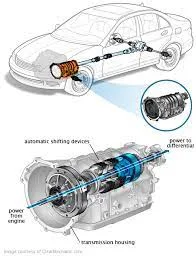What are the Symptoms of a Failing Transmission, and How Costly is it to Repair or Replace?
Your car's transmission is a vital component that ensures the power generated by the engine is transmitted to the wheels, allowing your vehicle to move. However, like any mechanical part, transmissions can wear out over time, leading to performance issues and potential safety hazards. In this blog, we will explore the symptoms of a failing transmission and discuss the costs associated with repairing or replacing it. If you ever encounter transmission problems, remember that ACR is the best car service center to address your needs.
Symptoms of a Failing Transmission
- Strange Noises: Unusual sounds such as grinding, whining, or clunking when you shift gears or while the car is in neutral can be indicative of transmission issues.
- Slipping Gears: One of the most common symptoms is when your vehicle unexpectedly shifts gears while driving. You may notice a sudden increase in RPM (revolutions per minute) without a corresponding increase in speed.
- Delayed or Rough Shifting: A rough or jerky transition when changing gears or a noticeable delay in the gear engagement can signify transmission trouble.
- Fluid Leaks: Transmission fluid is essential for proper lubrication and cooling. Any visible leaks under your car, especially reddish or brownish fluid, can suggest a problem.
- Warning Lights: Modern vehicles are equipped with onboard diagnostic systems that can trigger a check engine or transmission warning light when issues arise. If these lights come on, it's essential to have your vehicle inspected promptly.
- Burning Odor: If you detect a burning smell coming from your engine bay, it could be a sign of overheating transmission fluid, which can lead to serious damage if left unaddressed.
- Difficulty in Shifting: If it becomes challenging to shift gears, whether using an automatic or manual transmission, it's a sign that something is amiss.
Cost of Repairing or Replacing a Failing Transmission
The cost of addressing a failing transmission can vary significantly based on several factors:
- Type of Transmission: Automatic transmissions are generally more complex and expensive to repair than manual transmissions. Continuously Variable Transmissions (CVTs) and dual-clutch transmissions also come with their unique repair challenges and costs.
- Severity of Damage: Minor issues like a fluid leak or worn-out clutch plates can be relatively inexpensive to repair. However, if the transmission needs a complete overhaul or replacement, costs can skyrocket.
- Labor Costs: Labor charges for transmission repairs vary depending on your location, the service center you choose, and the extent of work required. ACR, known as the best car service center, offers competitive rates and skilled technicians.
- Parts: The cost of transmission parts can vary depending on your car's make and model. Some transmissions may require specialized components, which can be expensive.
- Transmission Rebuild vs. Replacement: In some cases, a rebuilt transmission may be a cost-effective option. However, if the damage is extensive, a complete replacement may be necessary, which can be considerably more expensive.
- Warranty: If your vehicle is still under warranty, some or all of the repair costs may be covered, depending on the warranty terms.
Conclusion
A failing transmission can lead to safety hazards and significant inconveniences. It's crucial to address transmission problems promptly to prevent further damage and maintain the longevity of your vehicle. When facing transmission issues, it's wise to consult experts in the field, like the ACR car service center, renowned as the best in the business.
The cost of repairing or replacing a failing transmission can vary widely, so it's essential to get a professional assessment to determine the most appropriate and cost-effective solution for your specific situation. Remember that regular maintenance and addressing issues as they arise can help prolong the life of your transmission and keep your car running smoothly for years to come.


Comments
Post a Comment